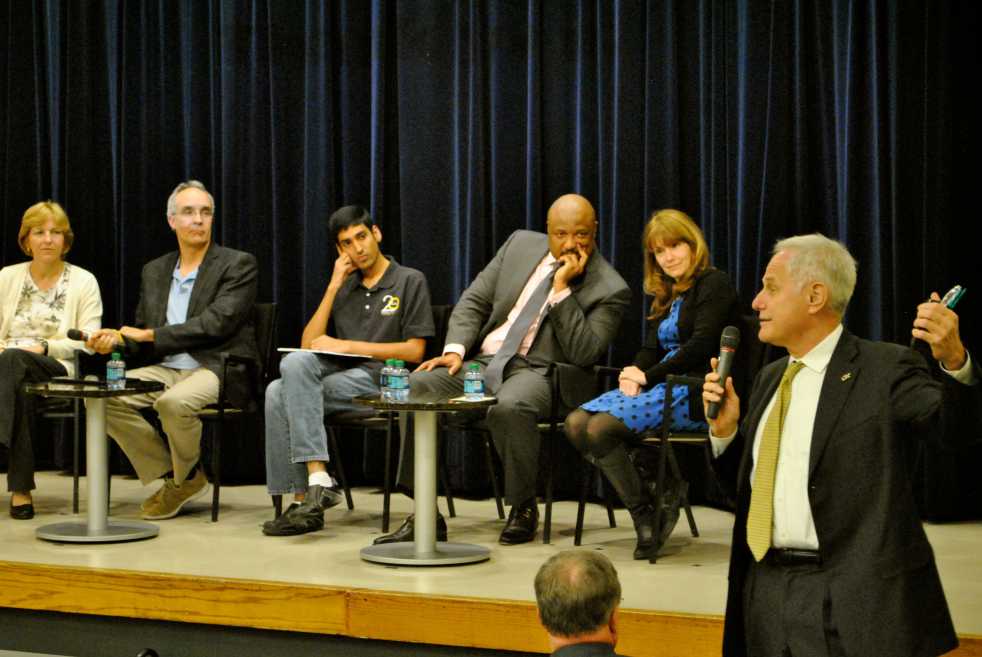On Thursday, Oct. 24, Provost Rafael Bras held a Town Hall entitled “MOOCs and Lessons Learned” concerning the progress and Massive Online Open Courses (MOOCs) currently offered by Tech.
“Online education in general… will provide opportunities to expand our presence, provide increased global access… [and] allow us to develop new methods and ideas for the delivery of residential education…. It will enhance the learning options and convenience,” Bras said.
Tech has offered online education for over 35 years. One popular program is the distance calculus program in which high school seniors take MATH 1502/2401.
Tech has also partnered with the website Coursera to offer free online courses to anyone in the world with an internet connection. These students submit homework and take quizzes, although no college credit is granted. There is a wide range and variety of nontraditional students involved in MOOCs, from high school students looking for more challenging coursework, to professionals who are interested in furthering their education.
Professors who have taught MOOCs include Bonnie Ferri, who teaches Linear Circuits, Mike Schatz, who teaches Introductory Physics I, Karen Head, who teaches First-Year Composition II, and Anderson Smith, who teaches Introduction to Psychology as a Science. The MOOCs taught by Professors Schatz, Head and Smith were funded by a $150,000 grant from the Bill and Melinda Gates Foundation.
“Our motivation for developing this MOOC is to improve one of our on-campus courses…. This particular class had an enrollment of about 400 students per term… over nine sections. So consistency and coverage across nine sections was really a problem…. We also wanted to improve their experience…. We wanted hands-on activities for them… [and] active learning in the classrooms,” said Ferri.
Ferri’s pilot course was taught to students enrolled in her class for the Summer 2013 semester. Online students watched pre-recorded lectures, completed homework and took quizzes. Class time was reserved for experiments and working through problem sets.
Future expansion of the MOOC offerings would primarily be geared toward graduate students; the primary example is the new Online Masters of Science in Computer Science degree. The program is accepting applications for Spring 2014. Around 300 students will be admitted to start in January.
In the future, undergraduate students can expect introductory courses to be offered in MOOC format, but the primary goal would be to synthesize the best aspects of online education and traditional lecture models. By doing this, many at Tech are hoping to revolutionize and bring real changes to online education.
“This will shorten the undergraduate education to 3 [years]…this might cheapen the rate of undergraduate education,” said Zvi Galil, Dean of the College of Computing.
He believes more people will be able to attend and spend less time in college.
MOOC-based education is only one of the many radical changes to the Tech educational model underway.
“I will in the near future create a task force that will be dedicated… for a significant time [to] think[ing] of education of Georgia Tech in the future, possibly to the revising and thinking of our curricula,” Bras said.
